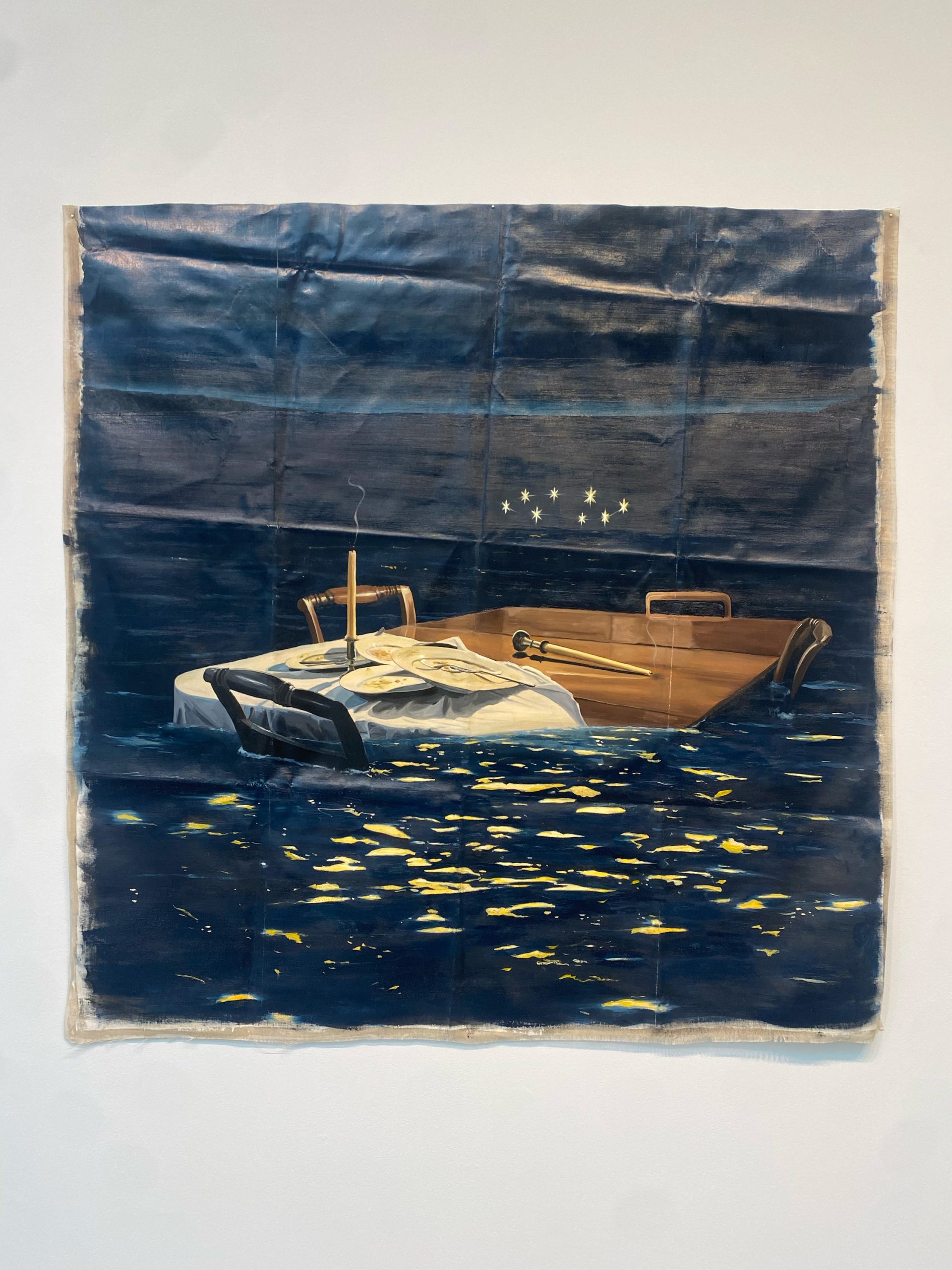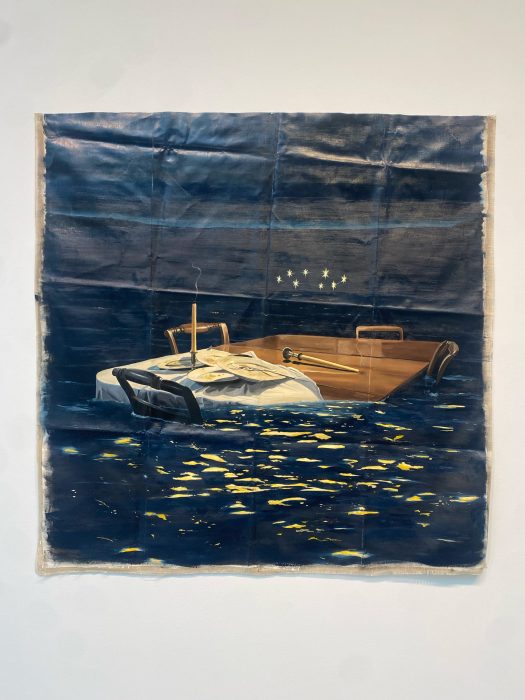April 16, 2024

Transcript by Gallery and Curatorial Fellow Kaitlin Benton

Transcript
In Eben Haines’, Millennials Are Killing the Dinner Industry by Letting it Get Cold, a lone dinner table is nearly submerged in the depths of an ominous seascape. Uncertainty settles over the creases of the linen surface. Cluttered dinnerware teeters on the edge of a table, dragged by a sheet slipping into the ocean, the horizon sits askew in the background. As the last whispers of smoke linger in the air, the candlesticks lie fallen, signaling that time has run out.
This piece admonishes the precarious gap between optimism and action, highlighting the urgent need to bridge aspirations with tangible efforts. In times of crisis, we often find ourselves paralyzed, waiting for higher powers—be they the wealthy or figures of our own faith—until action becomes an afterthought, help arriving only when it’s too late. A bright halo of stars hovers above the abandoned dinner table providing warmth to the desolate image. Halos are often symbols of omniscient beings that have powers of divine intervention to save the physical world. At the same time, the water levels have flooded the scene, the chairs are abandoned, and the dinner has gone cold. While sheer optimism will only get us so far, it is a force that can be used to carry out the necessary action to enact tangible change. The halo’s luminosity ripples across the water’s surface into the foreground approaching the viewer, optimism still lingers for the potential of a new beginning.
In his work, Eben Haines explores the passage of time by displacing familiar scenes of domesticity into isolated and precarious settings to emphasize the volatility of our present circumstances. Haines underscores the connection between the current climate crisis and the displacement of homes for millions, warning that the consequences of inaction will only worsen if we wait to address these pressing issues. Just like the waters of the flood, these realities are already approaching our doorsteps.
While Haines creates scenes of abandon and isolation, he emphasizes the importance of community and collective action and urges us to approach daily interactions with empathy. The table can be reset again for future friends to sit at and the candles reignited. Small actions can have big consequences: what can you do to take care of your community to foster safe spaces and empathy?